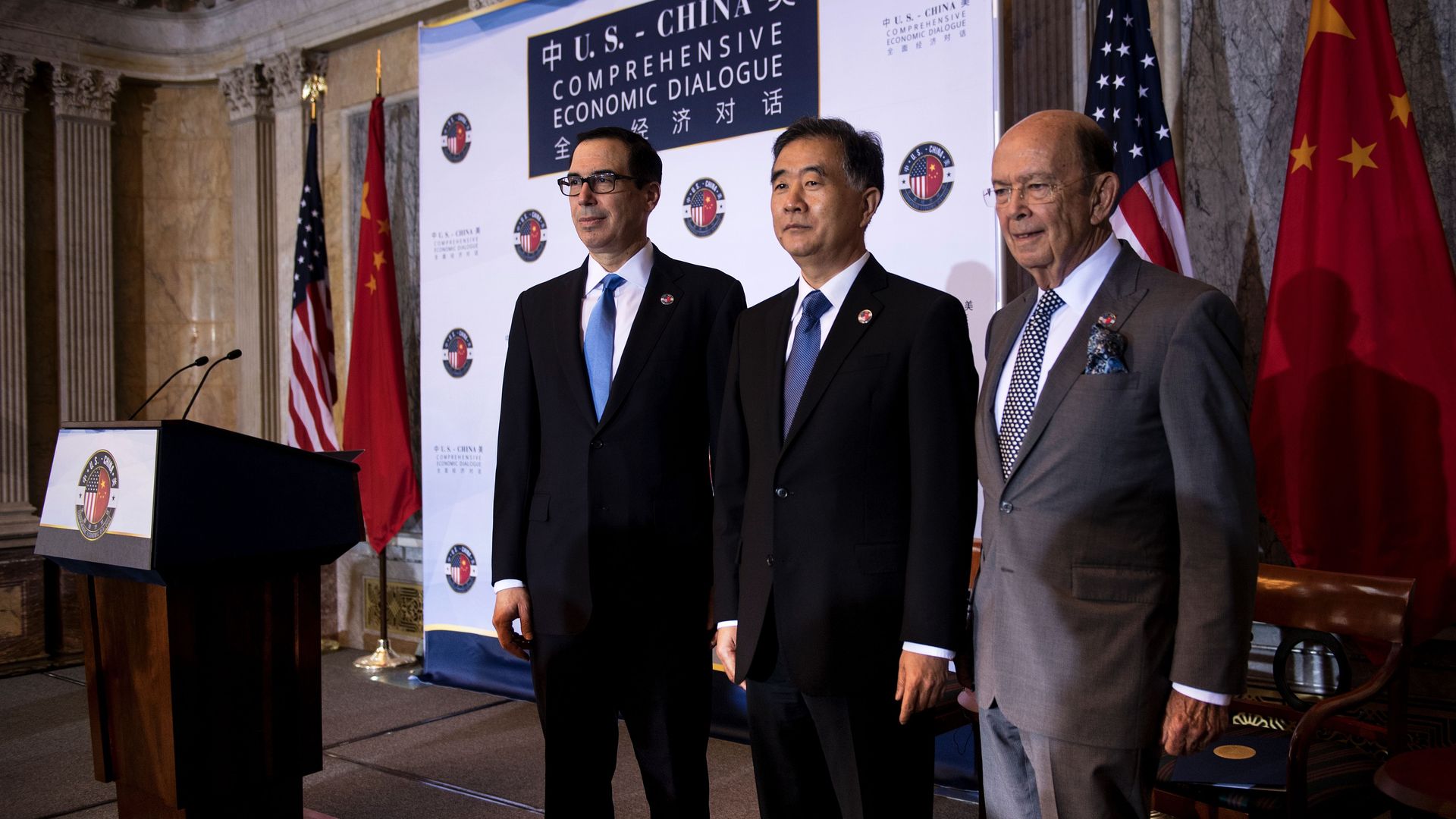Updated Apr 24, 2018 - World
Expert VoicesU.S. and China ratchet down rhetoric in trade disputes
Add Axios as your preferred source to
see more of our stories on Google.

Treasury Secretary Mnuchin, Chinese Vice Premier Wang Yang and Commerce Secretary Ross. Photo: Brendan Smialowski/AFP via Getty Images
